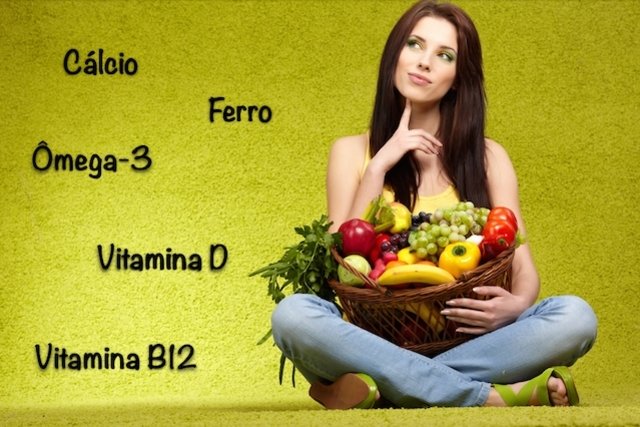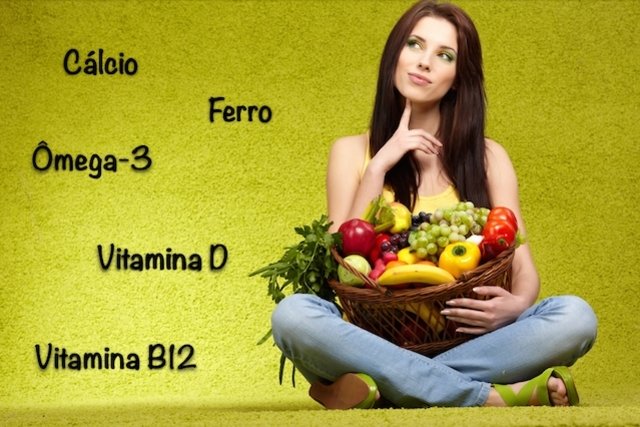To avoid any type of malnutrition when adopting a vegetarian diet, you should increase the variety of foods consumed and use strategies such as consuming vegetables rich in iron together with foods that are sources of vitamin C, such as oranges, as this vitamin increases the absorption of iron. iron in the body.
In general, vegetarians should pay attention to their consumption of calcium, iron, omega-3, vitamin B12 and vitamin D, as these are nutrients that are mainly present in foods of animal origin. Furthermore, the diet can also be complemented by consuming Nutritional Yeast, which is rich in protein, fiber, B vitamins and minerals.
See below the main nutrients that you should take care of in your diet and where to find them in foods of plant origin:
Calcium
Calcium can be found in cow’s milk and its derivatives, as well as in vegetable milk, such as soy and almonds, enriched with calcium, and it is necessary to check this information on the label.
Furthermore, this nutrient is present in green vegetables such as kale, broccoli and okra, dried fruits, chestnuts, walnuts, almonds, hazelnuts, beans, chickpeas, soybeans, tofu, peas and lentils.
Ferro
To meet iron needs, the vegetarian diet should be rich in dark green vegetables, such as kale, dried fruits, seeds such as pumpkin and sesame, lentils, chickpeas, soybeans and tofu.
Furthermore, it is important to consume foods rich in vitamin C, such as oranges, pineapple and acerola, in the same meal that contains foods with iron, as this increases iron absorption in the intestine. See more tips on What vegetarians should eat to avoid anemia.

Omega 3
In foods of plant origin, the main source of omega-3 is flaxseed oil, and you should consume 1 teaspoon of this oil per day for children and adults, 2 teaspoons for pregnant and breastfeeding women.
Furthermore, this nutrient can also be found in chia seeds and oilseed fruits, such as walnuts and chestnuts.
Vitamina B12
This vitamin is found mainly in foods of animal origin, such as fish, liver and heart, making it necessary for vegetarians to take vitamin B12 supplements to meet their needs.
Vitamin D
The main sources of this vitamin in food are fish and eggs, but most of the vitamin D needed by the body is produced through exposure to sunlight on the skin.
Therefore, to have good production, you must stay in the sun for 15 minutes to 1 hour a day, without using sunscreen. See How to sunbathe effectively to produce Vitamin D.
What vegetarians shouldn’t eat
Common Vegetarian Diet Problems
In addition to being careful with some nutrients, it is also important to be aware of excessive carbohydrate consumption in the vegetarian diet, as it is rich in flour, potatoes, pasta, grains such as rice and quinoa, seeds and legumes such as beans and soy.
Excess carbohydrates and sweets in the diet and processed foods can lead to weight gain and the emergence of problems such as diabetes and fatty liver.
Furthermore, it is also important to highlight the need to consume at least 2 liters of water per day, as plant foods are rich in fiber, which can cause constipation and abdominal pain when water consumption is not sufficient.
To learn more about this lifestyle, see also:

Sign up for our newsletter and stay up to date with exclusive news
that can transform your routine!
Warning: Undefined array key "title" in /home/storelat/public_html/wp-content/plugins/link-whisper-premium/templates/frontend/related-posts.php on line 12
Warning: Undefined array key "title_tag" in /home/storelat/public_html/wp-content/plugins/link-whisper-premium/templates/frontend/related-posts.php on line 13




